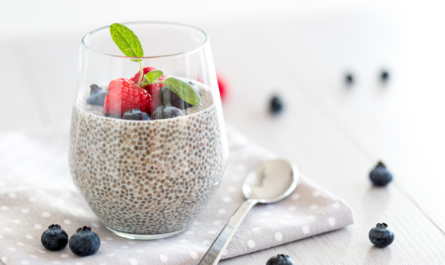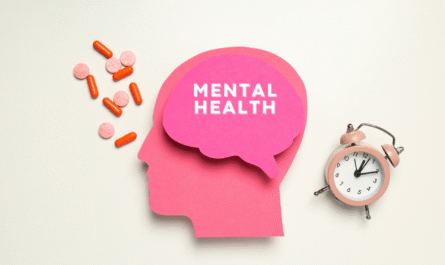As a dietitian, one of the most common questions I get is: “When should I eat breakfast if I’m trying to lose weight?” And the truth is, it’s not just what you eat, it’s when you eat it that can tip the scale in your favor.
I’ve seen firsthand how powerful breakfast timing can be in weight loss journeys. While skipping breakfast might seem like a way to save calories, it often backfires by triggering cravings, overeating later, or disrupting hormones that regulate hunger and satiety. However, even beyond whether you eat breakfast, the timing of your first meal can significantly impact your weight loss strategy. Let’s break it down.
Why Breakfast Timing Matters More Than You Think
The best time to eat breakfast is closely tied to our circadian rhythm, our internal clock that influences nearly every system in the body, including metabolism. This rhythm primes our body to digest food more efficiently in the morning and slow things down as the day progresses. That means we naturally burn more calories earlier in the day, even when eating the same food.
What happens when we delay our first meal until late morning or early afternoon? Research shows that calories consumed late in the day are more likely to be stored as fat, whereas calories eaten in the morning are more likely to be used for energy. I’ve seen clients shift their breakfast from 10:00 a.m. to 7:30 a.m. and experience measurable changes in weight, energy levels, and even blood sugar control, without changing their total calorie intake.
From a hormonal standpoint, eating early supports leptin and insulin sensitivity, both of which are critical for hunger regulation and fat storage. Skipping or delaying breakfast increases ghrelin (the hunger hormone) and decreases leptin (the fullness hormone), making you more likely to overeat later in the day.
Also Read: 20 Best Cardio Exercises for Weight Loss
The Ideal Time to Eat Breakfast for Weight Loss
So, when exactly should you eat breakfast? While there’s no one-size-fits-all answer, the sweet spot for most people is between 6:30 a.m. and 8:00 a.m., ideally within one hour of waking up. If you’re practicing overnight fasting or time-restricted eating, aim for a 12-hour fast, so if you ate dinner at 7:00 p.m., have breakfast at 7:00 a.m.
One compelling study showed that those who ate breakfast between 6:45 and 7:30 a.m. lost more weight than those who ate after 8:10 a.m., even when both groups consumed the same number of calories. While this was just one study and more research is needed, it reinforces what I’ve observed clinically: earlier breakfast equals better results.
But keep this in mind, consistency is just as important as timing. If you’re eating at 7:00 a.m. one day and 11:00 a.m. the next, your body can’t establish a rhythm. I always advise clients to pick a window that aligns with their sleep-wake cycle and stick with it as closely as possible.
The Link Between Breakfast and Appetite Regulation
Eating breakfast sets the metabolic tone for the day. A high-protein, high-fiber meal first thing in the morning helps regulate blood sugar and prevents the spikes and crashes that trigger cravings and overeating. When you skip breakfast, you’re more likely to experience energy slumps that drive you to reach for fast carbs or sugary snacks later.
In my practice, I’ve found that clients who eat a protein-rich breakfast report fewer cravings, especially in the evening. This makes sense, when your body is well-nourished in the morning, it doesn’t go into “catch-up” mode later in the day. That 4:00 p.m. slump? It often vanishes when you fuel properly from the get-go.
Also, people who skip breakfast tend to consume more calories overall, despite eating fewer at the beginning of the day. Skipping breakfast might seem like a time-saving strategy, but it often leads to a chaotic eating pattern that works against your weight loss goals.
Breakfast and Blood Sugar
If you’re trying to lose weight, blood sugar management is non-negotiable. Eating breakfast early stabilizes glucose levels and improves insulin sensitivity throughout the day. It’s not just what you eat, but when you eat that influences your glycemic response.
When you delay eating, your body becomes more insulin resistant, which can lead to fat storage, particularly around the belly. I’ve worked with countless clients with prediabetes or insulin resistance who experienced a noticeable improvement in glucose control simply by shifting breakfast earlier and including protein, healthy fats, and fiber.
The science backs this up: insulin sensitivity is highest in the morning and progressively decreases throughout the day. Eating your largest or most carbohydrate-rich meal in the morning instead of the evening can reduce fat storage, improve energy, and help reverse insulin resistance.
Cognitive and Emotional Benefits of Early Breakfast
There’s another angle to all this: mental clarity and emotional regulation. I’ve seen people dramatically improve their mood and focus simply by eating a nutritious breakfast early in the day. When your brain has the fuel it needs, you’re less irritable, more productive, and less likely to turn to food for emotional comfort.
Research supports this. Skipping breakfast has been associated with slower reaction times, lower memory recall, and decreased cognitive performance. It’s also linked to increased levels of cortisol, the stress hormone. In the long run, breakfast skippers show higher rates of cognitive decline.
Personally, I recommend including complex carbs, healthy fats, and protein in the morning. Think eggs and avocado on whole grain toast, or Greek yogurt with berries and chia seeds. These meals stabilize mood, reduce stress-related eating, and help prevent decision fatigue around food later in the day.
Does Intermittent Fasting Conflict with Early Breakfast?
Many clients ask how breakfast timing fits with intermittent fasting (IF). The key here is how you structure your eating window. Contrary to popular belief, intermittent fasting doesn’t require skipping breakfast, it simply means you’re eating within a compressed time frame.
I often recommend an early time-restricted feeding (eTRF) model, where clients eat between 7:00 a.m. and 3:00 p.m. or 8:00 a.m. and 4:00 p.m. This combines the metabolic benefits of fasting with the proven advantages of early meal timing. Compared to skipping breakfast and eating late, early time-restricted eating leads to more fat loss, improved insulin sensitivity, and better appetite control.
If you do fast, aim to break your fast no later than mid-morning. This honors your circadian rhythm while still giving you a daily fasting window of 12–16 hours. The benefits of IF aren’t canceled out by breakfast, they’re enhanced when it’s early and nutrient-dense.
How Sleep and Stress Influence Morning Hunger
What if you’re not hungry in the morning? This is often due to poor sleep or chronic stress. A short night of sleep raises ghrelin and lowers leptin, your body’s way of nudging you to find quick fuel. Ironically, this can also blunt appetite in the early hours and then spike it later in the day.
In my experience, fixing sleep quality can completely change how people feel about breakfast. After 7–8 nights of good rest, many clients naturally begin to feel hungry around 7:00 a.m. again. Stress, on the other hand, can either increase or suppress appetite depending on the person, but it always disrupts the body’s natural hunger cues.
So if you’re skipping breakfast because you’re “just not hungry,” look at your sleep, stress, and meal timing the night before. A late-night snack or heavy dinner can suppress morning hunger. Adjust your evening habits, and morning appetite often returns.
Final Thoughts
The best time to eat breakfast for weight loss? Within an hour or two of waking up, ideally between 6:30 and 8:00 a.m., and at least 12 hours after your last meal. But it’s not just about timing, what you eat matters too.
Aim for a balanced breakfast that includes 20–30 grams of protein, fiber, and healthy fats. Avoid ultra-processed carbs or sugary cereals that spike your blood sugar and leave you crashing by mid-morning. Think eggs, oats, protein smoothies, or avocado toast.
If you’re serious about weight loss, don’t underestimate the power of an early, high-quality breakfast. It supports your metabolism, aligns with your body clock, and gives you an edge that lasts all day.
FAQs
Only if it includes calories, like in a latte with milk or butter coffee. Black coffee alone doesn’t count, it won’t stabilize blood sugar or provide lasting energy. Pair it with protein and fiber for a real breakfast. If your goal is weight loss and hormonal balance, early breakfast wins. You can still fast by doing early time-restricted eating. Skipping breakfast and eating late often leads to poor metabolic outcomes. Fruit is healthy, but on its own it lacks protein and fat, which are essential for fullness and blood sugar balance. Pair it with Greek yogurt, nut butter, or eggs to create a complete meal. One of my go-to recommendations is: 2 eggs, 1 slice of whole-grain toast, half an avocado, and a cup of berries. It’s balanced, satisfying, and keeps you energized for hours. Does coffee count as breakfast?
Is it better to eat breakfast or fast if I want to lose weight?
Can I eat fruit alone for breakfast?
What’s the best breakfast for weight loss?

























